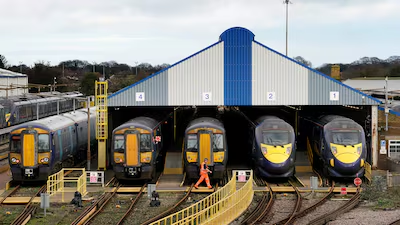
Train operating companies have offered the drivers' union a two-year pay deal. PA
Train operating companies have offered the drivers' union a two-year pay deal. PA
Train drivers offered pay deal as Saturday strike bites
Aslef said it had not seen the offer

